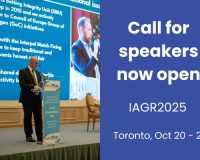
Policy-level approaches to supporting treatment for gambling-related harms
IAGR partner, Greo Evidence Insights, provides IAGR members with a snapshot of policy-level approaches to supporting treatment for gambling-related harms worldwide.
Greo is an independent, non-profit organisation that helps organisations strengthen their programs, policies, and practices by harnessing the power of evidence and stakeholder insight.
Leading up to IAGR2023, Greo will summarize the evidence related to topics in the conference program. This month, Greo has shared a selection of evidence around policy-level approaches to supporting treatment for gambling-related harms.
The IAGR2023 session inspiring this topic was ‘Strengthen regulations and controls for effective treatment of disordered gambling’ with Sibongile Simelane-Quntana, Executive Director of the South African Responsible Gambling Foundation.
Policy-level approaches to supporting treatment for gambling-related harms
Gambling-related harms are a significant public health concern with impacts at the individual, community, and population levels. Research shows that while upstream prevention and education approaches are critical for managing gambling harms across all three levels, treatment remains important for people who are experiencing moderate to severe gambling-related harms.
While the body of evidence on treatment for gambling harms is somewhat limited in terms of long-term studies and culturally diverse samples, promising practices have emerged. These include but are not limited to, treatments like cognitive behavioural therapy and motivational interviewing, combined with support options with low barriers to access, such as helplines, remote interventions, and self-help interventions. Policy approaches to supporting treatment for gambling-related harms, including the role of gambling regulators, vary between jurisdictions. In some jurisdictions, regulators play a role in managing funds for treatment and facilitating the integration of treatment and support across gambling and community touchpoints through mandatory referral and/or signposting processes.
How can policymakers, including regulators, enable comprehensive, integrated, and appropriate treatment and support options for people experiencing gambling-related harms?
Recently published gambling research
Below is a selection of open-access resources on promising practices for gambling harm treatment and support, including evidence related to treatment modalities, funding for treatment, and integration of treatment referrals and/or signposting into operator-based gambling harm-reduction initiatives:
- Effective treatment and support for problem gambling
- Policies and interventions to reduce harmful gambling: An international Delphi consensus and implementation rating study
- Corporate social responsibility vs. financial interests: the case of responsible gambling programs
- Early intervention and identification of gambling disorder: A systematic literature review of strategies implemented by gambling operators.
- Review of self-exclusion from gambling venues as an intervention for problem gambling
- Responsible gambling through a motivational telephone intervention to high-risk gamblers – An evaluation of user satisfaction and subjective intervention effects
Evidence-informed action
The following are examples of policy-level approaches to facilitating treatment funding and/or integration of treatment within operator-based gambling harm-reduction initiatives:
United Kingdom
The UK government’s recent Gambling Act Review white paper recommends that funds from a statutory levy for gambling operators be used to improve the integration of public and third-sector treatment services so that people experiencing gambling-related harms are better able to access supports and treatment.
- High stakes: Gambling reform for the digital age (UK Gambling Act Review white paper report – see page 132)
Australia
The Australian government’s recent inquiry into harm from online gambling recommends the development of a national strategy that includes measures to provide appropriate treatment services for those experiencing harm. Other recommendations include ongoing funding for research on best practices for treatment and funds from a levy to support the national regulator to work with jurisdictions on best practice prevention, detection, early intervention, and treatment provisions.
- You win some, you lose more: Online gambling and its impacts on those experiencing gambling harm (Australian government response to submissions from the 2022 inquiry – see page 47)
United States
This report highlights how the degree of attention on safer gambling programs and practices varies across different United States gambling regulatory agencies. In states where a large portion of funds were directed towards problem gambling services, treatment options were comprehensive and widely used. States that committed lower funding towards gambling services reported fewer enrolments in state-funded gambling treatment programs; accordingly, these states tended to lack certified gambling counsellors and depend more heavily on donations from industry and services from non-profits and volunteer-run peer support groups such as Gamblers Anonymous.
- 2021 Survey of Publicly Funded Problem Gambling Services in the United States (National Association of Administrators for Disordered Gambling Services)
Canada
Regulations in British Columbia require that all people who request a voluntary self-exclusion (VSE) from gambling are offered a referral to problem gambling treatment services.
- Responsible gambling standards for the BC gambling industry (Gaming Policy and Enforcement Branch – see page 3)





